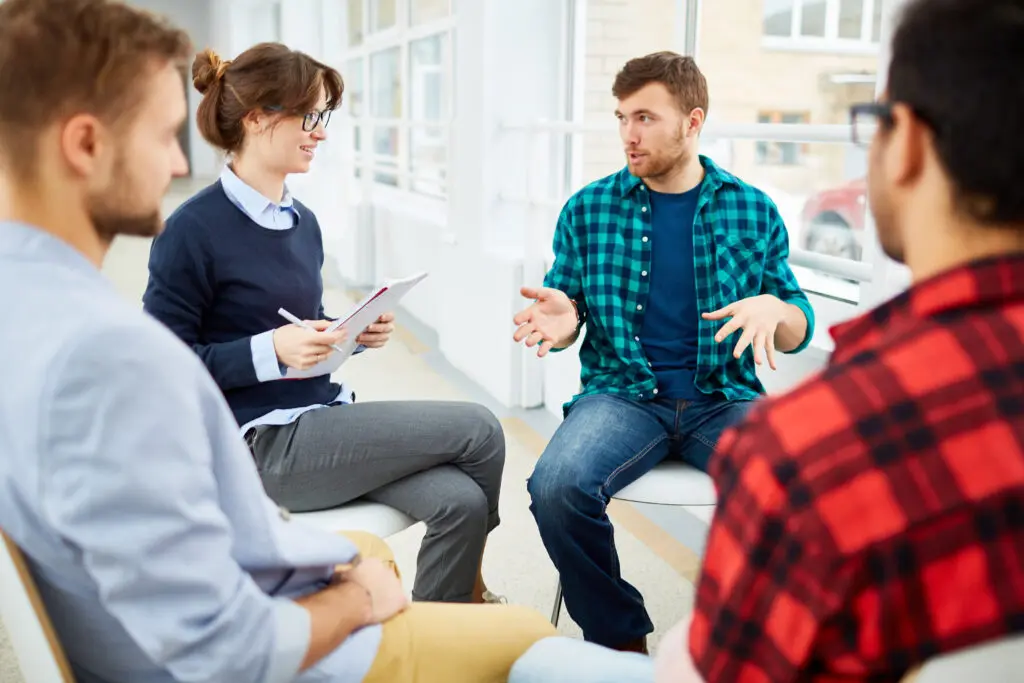24/7 Helpline:
(866) 899-221924/7 Helpline:
(866) 899-2219
Learn more about Prescription drug Rehab centers in Valley Village
Prescription drug Rehab in Other Cities

Other Insurance Options

GEHA

Regence

Ceridian

Kaiser Permanente

Aetna

CareSource

AllWell

Health Choice

WellCare Health Plans

Optum

Magellan

Access to Recovery (ATR) Voucher

Meritain

PHCS Network

Carleon

Choice Care Network

Cigna

EmblemHealth

Optima

State Farm

Studio 12 Private Alcohol and Drug Treament Program – Detox
Studio 12 Private Alcohol and Drug Treament Program – Detox is a private rehab located in Valley Vil...

Recovery Guild
Recovery Guild is a private rehab located in Valley Village, California. Recovery Guild specializes ...

























